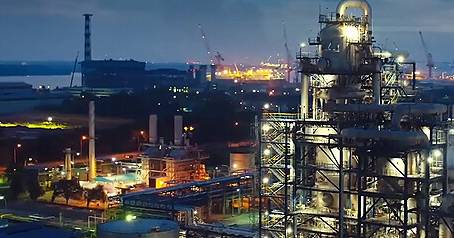Sep . 13, 2024 08:41 Back to list
pvc connection pipe
Understanding PVC Connection Pipes A Comprehensive Guide
In the realm of plumbing and construction, the choice of materials plays a pivotal role in ensuring the durability and efficiency of systems. Among the various options available, PVC (Polyvinyl Chloride) connection pipes have garnered significant attention due to their remarkable properties and versatility. This article delves into the features, benefits, applications, and installation methods of PVC connection pipes.
What are PVC Connection Pipes?
PVC connection pipes are manufactured from a synthetic plastic polymer known as polyvinyl chloride. This material is renowned for its strength, lightweight attributes, and resistance to corrosion and chemical degradation. As a result, PVC pipes are commonly used in plumbing, drainage, irrigation systems, and various industrial applications. The connection of these pipes is often facilitated through various types of fittings, ensuring secure and watertight joins.
Advantages of PVC Connection Pipes
1. Durability One of the standout features of PVC connection pipes is their resilience. Unlike metal pipes, which can corrode over time, PVC is resistant to rust and degradation from chemical exposure. This longevity makes PVC a cost-effective choice in the long run.
2. Lightweight PVC pipes are significantly lighter than their metal counterparts, making them easier to handle, transport, and install. This can lead to decreased labor costs and improved efficiency during installation.
3. Easy to Install The installation process for PVC connection pipes is straightforward. They can be easily cut, joined, and customized on-site, which is particularly beneficial in complex plumbing systems.
4. Non-Toxic PVC is a non-toxic option, making it suitable for potable water supply systems. It doesn’t leach harmful substances into the water, safeguarding public health.
pvc connection pipe

Applications of PVC Connection Pipes
PVC connection pipes find a wide range of applications across various sectors
- Residential Plumbing Used in water supply lines, drainage systems, and venting. - Irrigation Widely utilized in agricultural settings for efficient water distribution. - Industrial Use Employed in chemical processing and waste management due to their resistance to various chemicals. - Construction Integral to building infrastructure, including wastewater management systems.
Installation Tips
When installing PVC connection pipes, it’s crucial to ensure proper alignment and secure connections. Here are a few tips for effective installation
- Measure Carefully Accurate measurements are essential to ensure that pipes fit together seamlessly. - Use the Right Fittings Select the appropriate fittings for the specific application to prevent leaks. - Follow Manufacturer Instructions Adhere to guidelines for cutting, bonding, and maintaining pressure levels during installation to ensure a successful setup.
Conclusion
PVC connection pipes are an indispensable component in modern plumbing and construction. Their durability, lightweight nature, and resistance to chemicals make them an ideal choice for a multitude of applications. By understanding the characteristics and proper installation methods of PVC connection pipes, homeowners, contractors, and engineers can make informed decisions that contribute to the sustainability and efficiency of their projects. As technology advances, the use of PVC in connection pipes is likely to continue growing, reaffirming its status as a reliable plumbing solution.
-
PVC Transparent Sheet Roll - Durable & Flexible PVC Plastic Sheet Roll for Industrial & Home Use
NewsJun.24,2025
-
High-Quality PVC PPR Pipes and Fittings Durable ERA PPR Solutions
NewsJun.10,2025
-
High-Quality Large HDPE Sheets & Large Diameter PVC Pipe Durable Large PVC Pipe Supplier
NewsJun.10,2025
-
High Density Polyethylene Cutting Board - Durable & Food Safe
NewsJun.09,2025
-
3 Inch PVC Pipe for Durable Irrigation Affordable & Reliable
NewsJun.09,2025
-
Premium PPR Plastic Water Pipe Fittings - Durable & Leak-Free
NewsJun.09,2025

